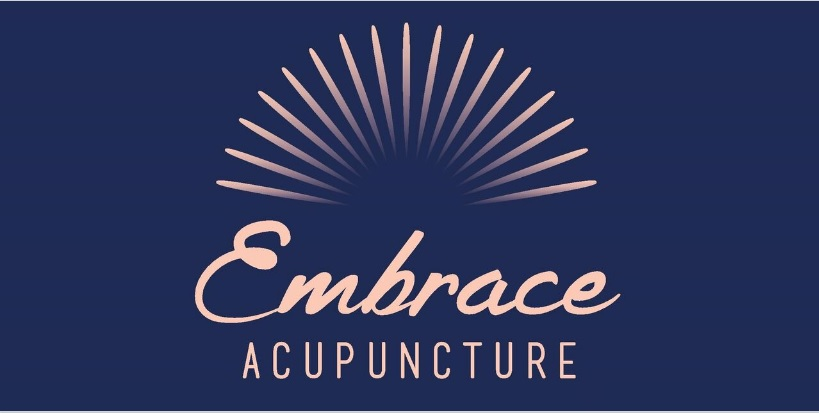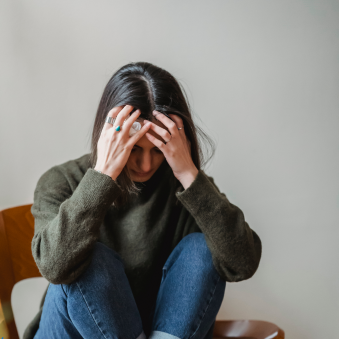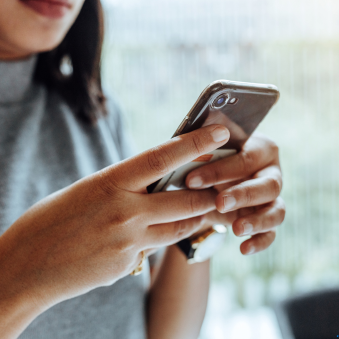From Overwhelmed to Empowered: A Natural, Holistic Guide to Anxiety
Updated March 2025
A client recently asked me for tips to stop anxiety from spiralling into a debilitating experience. At Embrace Acupuncture, we see many women dealing with anxiety, and I’ve personally experienced how overwhelming it can be.
For me, an anxiety spiral feels like a whirlwind—sometimes small, sometimes a full-blown tornado. It starts from seemingly nothing, but if left unchecked, it grows larger, spinning out of control. Like a tornado, it becomes difficult to stop and can be destructive to me and those around me.
No two people experience anxiety in the same way, but these strategies have helped me immensely, and I hope they help you too.
👉 Want to learn how Acupuncture can help with anxiety?
Prefer to get started now some support?
Types of Anxiety
From my experiences and listening to others, I categorise anxiety into four types:
1️⃣ Situational Nervousness
Anxiety triggered by a specific event—like a job interview, public speaking, or meeting new people. Symptoms may include:
● A racing heart ❤️
● Sweaty palms 💦
● Swirling thoughts 🌪️
🔹 How to handle it: Recognise that it’s just nerves, not a deeper problem. Cut yourself some slack. If it’s really bad, give yourself permission to opt out, but if it’s important, commit to doing just what you need to. Often, you’ll feel better afterward and build courage for next time.
2️⃣ PMS-Related Anxiety
Towards the end of your cycle, progesterone and its derivative, pregnenolone, drop, reducing activation of the GABA-A receptor in your brain—your natural ‘feel-good’ switch. This can result in:
● Flat mood 😞
● Irritability 😡
● Anxious, teary feelings 😢
🔹 How to handle it: If this happens occasionally, manage it as best you can. But if it’s happening every month, it’s time to balance your hormones! Acupuncture and herbs have been shown to reduce PMS symptoms by at least 50% (Read the research).
3️⃣ Short-Term Physical Causes
Sometimes, anxiety isn’t just in your head—it’s in your body! Certain physical factors can trigger or worsen anxiety, including:
● Too much caffeine ☕ – Caffeine stimulates the nervous system, increasing heart rate and triggering a stress response. If you're sensitive, even one cup can make you feel jittery and anxious.
● Lack of sleep 😴 – Poor sleep leads to increased cortisol (your stress hormone), making you more prone to anxious feelings.
● Low blood sugar 🍽️ – Skipping meals or eating high-sugar foods can cause blood sugar crashes, leading to irritability, dizziness, and anxious sensations.
● Dehydration 💧 – Even mild dehydration can affect mood, causing brain fog and increased stress.
● Nutrient deficiencies 🥦 – Low magnesium, B vitamins, or omega-3s can contribute to heightened stress and nervousness.
● Physical tension & shallow breathing 😮💨 – Poor posture, tight muscles, and not breathing deeply enough can signal to your brain that you're in a state of stress.
How to handle it:
● Limit caffeine. Try switching to herbal tea or matcha for a gentler boost.
● Prioritise sleep. Create a bedtime routine and avoid screens before bed.
● Eat balanced meals. Include protein, healthy fats, and complex carbs to stabilise blood sugar.
● Stay hydrated. Aim for at least 2L of water per day.
● Take deep breaths. Try belly breathing or a guided relaxation exercise.
● Stretch or move. Gentle movement, yoga, or even shaking out tension can reset your nervous system.
If anxiety caused by these factors is happening often, consider keeping a journal to track patterns and make adjustments to your daily routine.
4️⃣ Bigger Life Issues 🚦
As Sarah Wilson explains in First We Make the Beast Beautiful, anxiety can be a STOP! WRONG WAY! GO BACK! signal—an indicator that something isn’t right in your life.
Often, anxiety arises when:
● You’re suppressing emotions like anger 😤
● You know deep down a job, relationship, or situation isn’t right for you 😔
● You’re avoiding making necessary changes 🔄
🔹 How to handle it: If you suspect a bigger issue, schedule alone time (preferably in nature 🌿) to journal and reflect. No amount of yoga, colouring books, or Acupuncture can fix deep misalignment in your life
Ways to Prevent Anxiety
Ways to Prevent Anxiety 🛑
✅ Sleep & Nutrition
● Get enough sleep! Lack of sleep increases stress hormones.
● Eat nourishing foods: Prioritise proteins, good fats, and vegetables.
● Avoid sugar & processed foods: They disrupt gut bacteria, reducing serotonin (90% of which is made in the gut!).
● Steer clear of additives: Download the Chemical Maze app to identify harmful ingredients.
● Support gut health. Eat fermented foods like sauerkraut, kimchi, and kefir to promote a healthy gut microbiome, which directly impacts mood.
🧘♀️ Mindfulness & Movement
● Meditate or do yoga daily. Try:
○ One Giant Mind 🧠
○ Headspace 🌱
○ Buddify 🌸
○ Yoga with Adriene (free, online) 🌸
● Spend time alone, away from screens.
● Move your body daily. Regular exercise, even gentle activities like walking or stretching, helps lower stress hormones and boost mood-enhancing endorphins.
● Engage in creative activities. Painting, music, dancing, or crafting can serve as a mindful escape from overthinking.
● Practice breathwork. Try diaphragmatic breathing or alternate nostril breathing to instantly calm the nervous system.
🌿 Lifestyle & Environment
● Reduce screen time. Overstimulation from digital devices can heighten anxiety levels.
● Prioritise connection. Spend quality time with loved ones and engage in meaningful conversations.
● Create a calming evening routine. Dim the lights, drink herbal tea, and avoid stressful conversations before bed.
● Declutter your space. A clean, organised environment can contribute to a clearer, more peaceful mind.
● Spend time in nature. Even a short walk outside can help reset your nervous system and promote relaxation.
By incorporating these habits into your routine, you can build resilience against anxiety and create a solid foundation for emotional well-being.
How Acupuncture can help Anxiety
Our approach to using Acupuncture for anxiety is to have you as calm and relaxed as possible. We understand your stress levels are already high so we use the finest needles available and ultra gentle Acupuncture techniques.
Acupuncture works to switch your mind and body out of fight or flight mode and into calm normal rhythms. These effects accumulate with each Acupuncture session for longer and longer lasting effects.
See more on how we use Acupuncture for Anxiety.
In addition to calming your nervous system, Acupuncture can help with some of the physical symptoms such as insomnia, gut issues and the array of symptoms that can be associated with your hormones.
Anxiety as a warning sign
For me, anxiety is my canary in the coal mine—an early alert system that something is off in my life.
Some people get migraines, stomach issues, or exhaustion when things aren’t right. I get anxiety. Now that I understand it, I don’t see anxiety as an enemy to be eliminated—I see it as a guide.
You need a full toolkit to manage anxiety. I hope some of these strategies help you too. 💛
See more on how we work with Acupuncture for Anxiety.
Here’s more blogs and tips to help with anxiety.
Like some support? Book an Acupuncture appointment today!
This blog written by Dr Danielle Maguire (TCM).
Danielle graduated from RMIT University with honours in Bachelor Degrees in Human Biology and Traditional Chinese Medicine.
She has been passionately working with hormonal health, fertility and pregnancy for over a decade.
See more about how Danielle works here.






